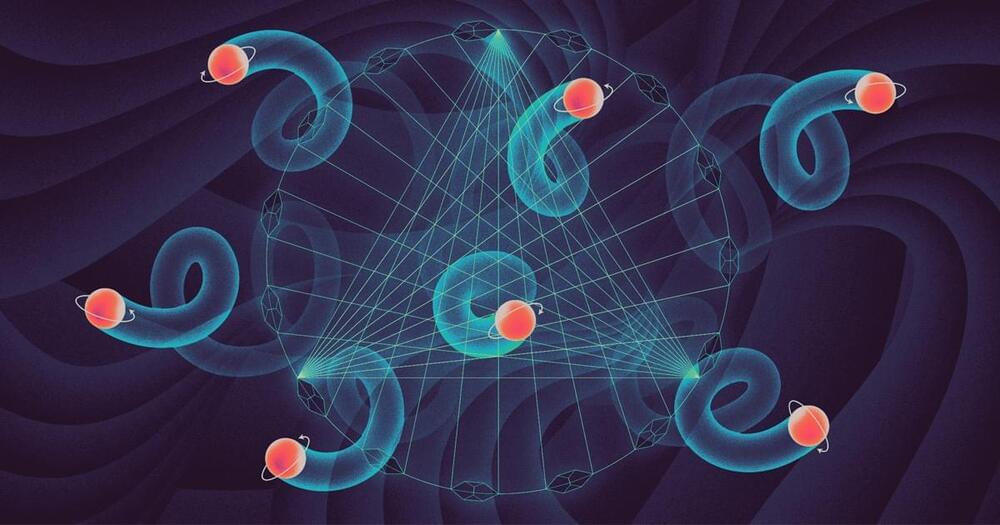Jul 8, 2022
Physicists Record Temporal Coherence of a Graphene Qubit
Posted by Dan Breeden in categories: computing, nanotechnology, quantum physics
Recently, researchers have been incorporating graphene-based materials into superconducting quantum computing devices, which promise faster, more efficient computing, among other perks. Until now, however, there’s been no recorded coherence for these advanced qubits, so there’s no knowing if they’re feasible for practical quantum computing.
In a paper published today in Nature Nanotechnology, the researchers demonstrate, for the first time, a coherent qubit made from graphene and exotic materials. These materials enable the qubit to change states through voltage, much like transistors in today’s traditional computer chips — and unlike most other types of superconducting qubits. Moreover, the researchers put a number to that coherence, clocking it at 55 nanoseconds, before the qubit returns to its ground state.
The work combined expertise from co-authors William D. Oliver, a physics professor of the practice and Lincoln Laboratory Fellow whose work focuses on quantum computing systems, and Pablo Jarillo-Herrero, the Cecil and Ida Green Professor of Physics at MIT who researches innovations in graphene.
















